CBSE Class 7 English Chapter 1 The Tiny Teacher Summary, Explanation along with Difficult Word Meanings from An Alien Hand Book
The Tiny Teacher – NCERT Class 7 English An Alien Hand book Lesson 1 The Tiny Teacher Summary and Detailed explanation of the lesson along with the meanings of difficult words. Also, the explanation is followed by a Summary of the lesson. Take Free Online MCQs Test for Class 7 Click Here
- The Tiny Teacher Introduction
- The Tiny Teacher Summary
- The Tiny Teacher Summary in Hindi
- The Tiny Teacher Explanation
- The Tiny Teacher Video Explanation
The Tiny Teacher Introduction
The lesson tells us about the life of an ant.
The Tiny Teacher Class 7 Video Explanation
The Tiny Teacher Summary
The ant is the smallest creature and also the commonest and wisest of all. Its story seems unreal and many people keep them as pets.
Ants use the feelers to touch another ant passing by when moving up or down in a row. They live in homes called nests or anthills. The red and black ants are the commonest. The anthill has many rooms or passages where the queen ant lays eggs. The young ones are called grubs and they live in nurseries while the worker ants live in quarters. The ants search for food and store in separate rooms. The soldier ants live in barracks.
The role of ants is clear and they do not perform the other ant’s work. They live a peaceful life.
The queen ant is a mother ant, with a life of fifteen years. It bites off its wings after its wedding flight. On a hot summer day, the queen meets the male ant or drone, up in the air, on its return bites off its wings and then lays eggs for the remaining life.
The eggs hatch and young ones or grubs come out. The soldier ant guards them, the worker ant feeds, cleans, takes them out for air, Sun and exercise.After two or three weeks the grubs grow into cocoons and remain without food or activity for two or three weeks. Then the cocoon breaks and ants come out. These new ants are trained for their role as worker or soldier or builder or cleaner ants.
Many other creatures live in the anthill. They are permitted there because of some benefits. Some give off a smell that is pleasant to the ants while some give pleasant juice and some act like pets. The greenfly is to ants like a cow is to humans. They give honeydew which is a nectar to the ants.
Humans can learn lessons on cleanliness, hard work, sense of duty, discipline, loyalty towards their land from the ants.
The Tiny Teacher Summary in Hindi
चींटी सबसे छोटा प्राणी है और सबसे सामान्य और बुद्धिमान भी है। इसकी कहानी अवास्तविक लगती है और कई लोग इन्हें पालतू जानवर के रूप में रखते हैं।
चींटियाँ एक पंक्ति में ऊपर या नीचे जाने पर दूसरी चींटी को छूने के लिए फीलर का उपयोग करती हैं। वे घरों में रहते हैं जिन्हें घोंसला या एंथिल कहा जाता है। लाल और काली चींटियाँ सबसे आम हैं। एंथिल में कई कमरे या मार्ग होते हैं जहाँ रानी चींटी अंडे देती है। युवाओं को ग्रब कहा जाता है और वे नर्सरी में रहते हैं जबकि कार्यकर्ता चींटियां क्वार्टर में रहती हैं। चींटियाँ भोजन खोजती हैं और अलग-अलग कमरों में स्टोर करती हैं। सैनिक चींटियाँ बैरक में रहती हैं।
चींटियों की भूमिका स्पष्ट होती है और वे दूसरी चींटी का काम नहीं करती हैं। वे शांतिपूर्ण जीवन जीते हैं। रानी चींटी एक चींटी है, जिसकी उम्र पंद्रह साल है। यह अपनी शादी की उड़ान के बाद पंख काट देता है। एक गर्म गर्मी के दिन, रानी चींटी नर चींटी या ड्रोन से मिलती है, वापस लौटने पर अपने पंखों को काटती है और फिर शेष जीवन के लिए अंडे देती है।
अंडे सेते हैं और युवा या ग्रब बाहर आते हैं। सिपाही चींटी उनकी रक्षा करती है, कार्यकर्ता चींटी खिलाती है, साफ करती है, उन्हें हवा, धूप और व्यायाम के लिए बाहर ले जाती है। दो या तीन सप्ताह के बाद ग्रब कोकून में विकसित हो जाते हैं और दो या तीन सप्ताह तक भोजन या गतिविधि के बिना रहते हैं। फिर कोकून टूट जाता है और चीटियाँ बाहर निकल आती हैं। इन नई चींटियों को कार्यकर्ता या सैनिक या बिल्डर या क्लीनर चींटियों के रूप में उनकी भूमिका के लिए प्रशिक्षित किया जाता है।
कई अन्य जीव एंथिल में रहते हैं। कुछ लाभों के कारण उन्हें वहां अनुमति दी गई है। कुछ चींटियों को सुखद गंध देते हैं जबकि कुछ सुखद रस देते हैं और कुछ पालतू जानवरों की तरह काम करते हैं। चींटियों के लिए हरी मक्खी इंसानों के लिए गाय की तरह है। वे शहद देते हैं जो चींटियों के लिए अमृत है।
मनुष्य चींटियों से स्वच्छता, कड़ी मेहनत, कर्तव्य की भावना, अनुशासन, अपनी भूमि के प्रति निष्ठा का पाठ सीख सकता है।
The Tiny Teacher Explanation
Passage: NAME the smallest insect you have seen, and the wisest. Is it the fly? No, it isn’t. Is it the mosquito? No, not the mosquito. Then it must be the worm. No, none of these. It is the ant—the commonest, the smallest but the wisest insect. The story of an ant’s life sounds almost untrue. But people have kept ants as pets, and have watched their daily behaviour closely.
Word Meaning
Wisest: most experienced, knowledgeable, and having good judgement
Mosquito: a small flying insect that bites the skin of people and animals and sucks their blood
Worm: a soft, elongated, soft-bodied parasitic animals
Pets: a domestic or tamed animal kept for companionship or pleasure
Explanation of the above Passage: The writer asks us about the most knowledgeable insect and gives options of fly, mosquito and worm. Then he settles for the ant being the most common, smallest and the wisest insect. The life of an ant is unbelievable but those who know about it keep them as pets and watch their daily routine carefully.
Passage: So we know a number of facts about this tiny, hard-working and intelligent creature. An ant uses its feelers or antennae to ‘talk’ to other ants by passing messages through them. Watch a row of ants moving up or down the wall. Each ant greets all the others coming from the opposite direction by touching their feelers.
Word Meaning
Feelers: to feel, here it refers to the antennae of the ant which helps it detect other ants
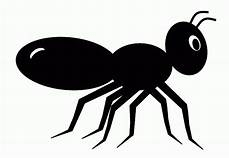 Explanation of the above Passage: He mentions the facts about this extremely small, hard working and intelligent creature. Ants talk to fellow ants passing by via the antenna. When rows of ants go up and down a wall, they greet each other this way, by touching the other’s feeler.
Explanation of the above Passage: He mentions the facts about this extremely small, hard working and intelligent creature. Ants talk to fellow ants passing by via the antenna. When rows of ants go up and down a wall, they greet each other this way, by touching the other’s feeler.
Passage: There are many kinds of ants. The commonest among them are the black or red ones. We have seen them since we were children, but haven’t paid enough attention to them. Where do they live? In their comfortable homes called ‘nests’ or ‘anthills’. Each has hundreds of little rooms and passages. In some of these rooms the queen ant lays eggs. 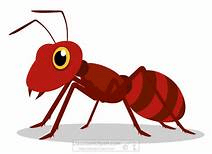
Others are nurseries for the young ones (called ‘grubs’). Workers have their reserved quarters.
Word Meaning
Grubs: the larvae or young ones of ants
Explanation of the above Passage: Out of the many types of ants, the red and black ants are the most common. We have seen them since we were children but we did not pay much attention to them. They live in homes called nests or anthills. Each home has numerous little rooms or passages. In some of these the queen ant lays eggs, while others are used as nurseries for the larvae or the young ones of ants. The worker ants have separate rooms for themselves.
Passage: They spend most of their time searching for food. Some rooms serve as storehouses for this food. Soldiers have separate barracks. No worker has ever tried to live in a soldier’s house; no soldier has ever gone out searching for food. No worker or soldier or cleaner has ever harmed a grub. So you see, an ant’s life is very peaceful. Each does its share of work intelligently and bravely, and never fights with other members of the group.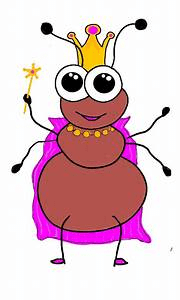
Word Meaning
Barracks: a large building or group of buildings used to house soldiers
Explanation of the above Passage: Most of their time is spent searching for food. The food is stored in some of the rooms of the nest. The soldier ants have separate rooms for themselves. No worker ant can live in the room of a soldier room and no soldier ant goes out searching for food. No worker antr or soldier ant ever harms a larva. This shows that the work has been allotted well and each category works strictly as per the work allotment. They live a peaceful life. Each ant does the work allotted to it and never fights with other fellow ants.
Passage: The queen is the mother of the entire population of the colony. It lives for about fifteen years. It has a pair of wings, but bites them off after its ‘wedding’ flight. This flight takes place on a hot summer day. The queen leaves the nest and goes out to meet a male ant, or drone, high up in the air. On its return to earth, it gets rid of its wings and then does nothing but lay eggs.
Explanation of the above Passage: The queen ant is the mother of the colony or the particular nest of ants. It has a lifespan of around fifteen years. Once the ant becomes a queen ant, i.e. when it weds an ant on a hot summer day, it bites its wings and sheds them. The queen ant flies high up in the air to meet a male ant, on return, bites off its wings and then lays eggs for the remaining life.
Passage: Eggs hatch and grubs come out. Soldiers guard them. Workers feed and clean them, and also carry them about daily for airing, exercise and sunshine. Two or three weeks later, grubs become cocoons and lie without food or activity for three weeks more. Then the cocoons break and perfect ants appear. Now it’s time for teaching and training. New ants learn their duties from old ants as workers, soldiers, builders, cleaners, etc. After a few weeks’ training, the small ants are ready to go out into the big world of work.
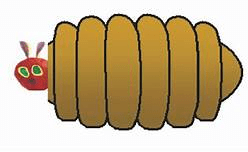
Word Meaning
Airing: to get air for refreshment
Cocoons: a silky case spun by the larvae of many insects for protection as pupae
Explanation of the above Passage: When the eggs hatch, the young ones or larva appear. These are called grubs. The soldier ants guard the grubs while the worker ants feed the grubs, clean them, take them for air, exercise and sunshine. The grubs grow into cocoons after two or three weeks and remain without food or activity for another two or three weeks. Once the cocoon breaks, the ants appear. This is followed by teaching and training of the ants. The new ants learn their work responsibilities from the old ants – as workers or soldiers or builders or cleaners. After being trained for a few weeks, the small ants take up their work roles.
Passage: An anthill is a home not only for ants but also for some other creatures—beetles, lesser breeds of ants and the greenfly. Why do ants want these alien creatures to live in their nests? For several reasons: some give off smell pleasant to the ants’ senses; others give sweet juices; and some are just pets or playthings like cats and dogs to human beings. The greenfly is the ants’ cow. The ants train it to give honeydew (like milk) with a touch of their antennae. They milk it just as we milk the cow.
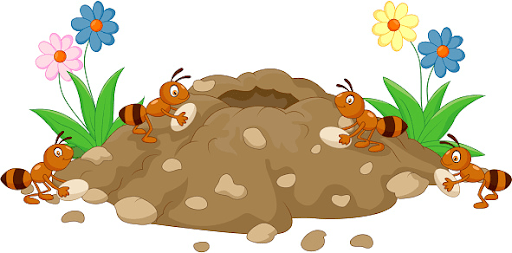
Word Meaning
Beetles: type of insect
Explanation of the above Passage: Not only ants but some other creatures like beetles and greenflies live in the anthills. Ants allow these foreign creatures to live in their homes because their smell pleases the ants, while some give sweet juice and some are like pets or playful companions to the ants, just like humans have dogs and cats as pets. The greenfly can be considered to be the cow of ants. It is trained by the ants to give honeydew which is similar to milk. This is done through their antennae. The ants take out the honeydew from the greenflies just like humans milk the cows.
Passage: Have humans learned as much as ants have? Perhaps they have, but they haven’t put their learning to good use. They may still learn a few things from this tiny teacher— hard work, sense of duty and discipline, cleanliness, care for the young ones, and, above all, a firm loyalty to the land where they live.
Word Meaning
Firm: determined
Loyalty: a feeling of strong support for someone or something
Explanation of the above Passage: The author says that maybe humans have also learned as much as the ants have but they have not put their knowledge to good use. The humans can still learn a few things from these tiny creatures – to work hard, to be dutiful and follow a disciplined life, to practice cleanliness, to care for the young ones and the most important- to be loyal towards their land.
The Tiny Teacher Textbook Questions
1. The story of an ant’s life sounds almost untrue.
The italicised phrase means
(i) highly exaggerated.
(ii) too remarkable to be true.
(iii) not based on facts.
Ans. (ii) too remarkable to be true.
2. Complete the following sentences.
(i) An ant is the smallest,____________________ _______________________________
(ii) We know a number of facts about an ant’s life because ——————————————————————
Ans.
(i) An ant is the smallest, wisest and commonest insects.
(ii) We know a number of facts about an ant’s life because many people keep ants as pets.
3. In what ways is an ant’s life peaceful?
Ans. An ant’s life is peaceful because each does its share of work intelligently and bravely, and never fights with other members of the group.
4, How long does it take for a grub to become a complete ant?
Ans. Grubs become ants in four to six weeks.
5. Why do the worker ants carry the grubs about?
Ans. The worker ants carry the grubs about daily for airing, exercise and sunshine.
6. What jobs are new ants trained for?
Ans. New ants learn their duties from old ants as workers, soldiers, builders, cleaners.
7. Name some other creatures that live in anthills.
Ans. Some other creatures like beetles, lesser breeds of ants and the greenfly also live in anthills.
8. Mention three things we can learn from the ‘tiny teacher’. Give reasons for choosing these items.
Ans. We can learn the following-
hard work because the tiny ants work very hard.
sense of duty and discipline because the tiny ants perform their duty and live a disciplined life.
Cleanliness because humans do not practice cleanliness while the ants live a neat and clean life.
9. Complete the following poem with words from the box below. Then recite the poem.
Soldiers live in barracks
And birds in ———————,
Much like a snake that rests
In a ———————. No horse is able
To sleep except in a ———————.
And a dog lives well,
Mind you, only in a ———————.
To say ‘hi’ to an ant, if you will,
You may have to climb an ———————.
| hole | kennel | nests | anthill | stable |
Ans.
Soldiers live in barracks
And birds in nests,
Much like a snake that rests
In a hole. No horse is able
To sleep except in a stable.
And a dog lives well,
Mind you, only in a kennel.
To say ‘hi’ to an ant, if you will,
You may have to climb an anthill.
Honeycomb Book Lessons
- Three Questions Summary, Explanation, Word Meanings
- A Gift of Chappals Summary, Explanation, Word Meanings
- Gopal and the Hilsa-fish Summary, Explanation, Word Meanings
- The Ashes That Made Trees Bloom Summary, Explanation, Word Meanings
- Quality Summary, Explanation, Word Meanings
- Expert Detectives Summary, Explanation, Word Meanings
- The Invention of Vita-Wonk Summary, Explanation, Word Meanings
Honeycomb Book Poems
- The Squirrel Poem Summary, Explanation, Word Meanings
- The Rebel Summary, Explanation, Word Meanings
- The Shed Summary, Explanation, Word Meanings
- Chivvy Summary, Explanation, Word Meanings
- Trees Summary, Explanation, Word Meanings
- Mystery of the Talking Fan Summary, Explanation, Word Meanings
- Dad and the Cat and the Tree Summary, Explanation, Word Meanings
- Meadow Surprises Summary, Explanation, Word Meanings
- Garden Snake Summary, Explanation, Word Meanings
An Alien Hand Book Lessons
- The Tiny Teacher Summary, Explanation, Word Meanings
- Bringing up Kari Summary, Explanation, Word Meanings
- Golu Grows a Nose Summary, Explanation, Word Meanings
- Chandni Summary, Explanation, Word Meanings
- The Bear Story Summary, Explanation, Word Meanings
Also See: